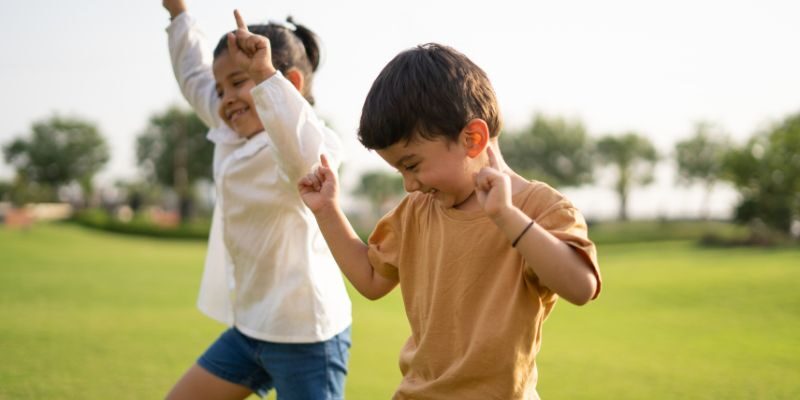This is the second article in a three-part series on The Powerful Role of the Body in Mental Health. Find the first and third articles here.
A rosy-cheeked child energetically playing outdoors – exploring, climbing, running – carries a vibrant look of health. It is a picture of strength and stamina, but also alertness, motivation and happiness.
It’s easy to recognize that there is something about being active – whether a child, teen, or adult – that so clearly bears profound and lingering good.
What we know intuitively is now confirmed by research. Regular physical activity is vital for healthy mental, relational and even spiritual development. In fact, how we routinely care for our bodies is inseparably connected to our mental health. Sleep, exercise, nutrition and time outdoors all play critical roles in the well-being of every family member.
The great news is that it doesn’t take much to reap a lot of benefits.
Choosing to be a little physically active is like taking hold of a powerful, mood-fluctuating lever, pulling it, and getting a burst of good feelings – focus, creativity, decreased anxiety and improved mood.
Understandably, for foster and adoptive families who often juggle numerous therapeutic and professional appointments in addition to already full schedules, outdoor play and exercise may feel like a low priority. However, blocking off some time to be active each day catalyzes improvements in areas parents are working so hard to help their children, like academic performance, self-regulation or mood.
There’s no doubt from the research. As far as mental health is concerned, building small habits as a family to be physically active is worth the commitment.
God’s design for growth includes the whole person
God designed us so that we grow and come alive as integrated beings – mind, body and spirit.
The ancient understanding of education included the formation of the whole person. The physical was not considered in isolation, nor the mind.
It turns out that all learning and growth is much less divisible than we might have imagined. As we engage the body in vigorous activity or even gentle movement, our mind, our emotions and our spirit are more alert, more agile and more well-off.
The doctor-writer, Luke, took time to note that Jesus grew in wisdom and in stature, a demonstration of the integrity – and importance – of the whole person in healthful growth.
Exercise and movement have astounding benefits for mental health
An abundance of recent research confirms these convictions.
Every time you exercise, the neurotransmitters dopamine, serotonin and epinephrine are released, providing an immediate boost in focus, energy and mood lift and a simultaneous calming effect as amygdala activity decreases. Over time, regular exercise contributes to neurogenesis in the hippocampus and more gray matter. It boosts your immune system and reduces inflammation processes associated with numerous diseases.
Even small amounts of regular physical activity have astounding benefits.
Modest exercise increases creativity, long-term memory, and executive function. Symptoms of depression, anxiety and distress diminish with increased activity across a wide range of populations, including people with diagnosed mental health disorders.
The Lancet Psychiatry found an enduring dose-effect of physical activity – that each additional hour of light activity at 12 years old reduces depression symptoms by 10% at 18 years old.
Over time, even small amounts of regular physical exercise can measurably alter one’s personality to become more agreeable, conscientious and open to new experiences.
What are some sensible, easy ways to increase physical activity as a family?
Increasing physical activity as a family can be easily integrated into current routines in small doses showing remarkable benefits. Here are a few suggestions:
- Simply take any opportunity to just move a little more – because small increases matter! The research is clear that even brief activity has notable benefits.
- Be outdoors as much as possible as a family. Time outdoors provides a natural means and motivation for being active. Especially for children, the motivation to run and explore is perfectly matched by nature’s twists and turns, open spaces and wonders.
- Prioritize time for free (unstructured) play for children, which builds natural physical, mental and emotional competencies like stamina, nimbleness and strength. Allow for acceptable risk-taking like climbing trees, going fast, exploring and wrestling.
Remember, kids need the guidance of parents to make sure that they have the best odds of good mental health through healthy physical habits.
Especially when it comes to being active, no one has the same influence as parents, in part because the home is where so many of these little habits are formed.
-Rachel Medefind is the Director of the Institute for Family-Centered Healing and Health. For more information on the research behind this article, download The Powerful Role of the Body in Mental Health: Being Physically Active.

